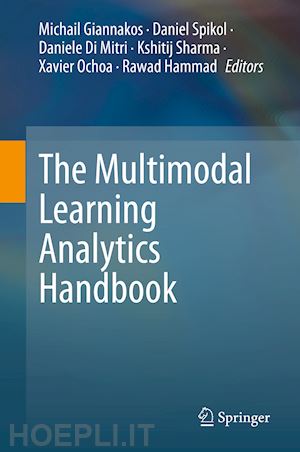Michail (Michalis) Giannakos is a professor of interaction design and learning technologies at the Department of Computer Science of the Norwegian University of Science and Technology (NTNU). He is the head of the Learner-Computer Interaction lab and his research focuses on the design and study of emerging technologies in online and hybrid education settings, and on developing new ways for humans to interact with interactive learning systems.
Giannakos has co-authored more than 200 manuscripts published in prestigious peer-reviewed journals and conferences (including Computers & Education, Computers in Human Behavior, IEEE Pervasive Computing, IEEE TLT, BIT, BJET, ACM TOCE, ACM IDC, ICLS/CSCL, Interact).
Giannakos, together with Mike Horn, is the Editor-in-Chief of the International Journal of Child-Computer Interaction (Elsevier). He is also on the Editorial Board of IEEE Transactions in Learning Technology, IEEE Transactions on Education, Behaviour & Information Technology, and the International Journal of Information Management, and has served as a guest editor on highly recognized journals such as BJET, Computers in Human Behavior, ACM TOCE and IEEE Multimedia. He has served as an evaluator for the European Commission (EC) and the US-NSF, and he recently authored a book on Experimental Studies in Learning Technology and Child–Computer Interaction (Springer) and co-authored the Educational Data Literacy textbook (Springer).
Giannakos has worked at several research projects funded by diverse sources like the EC, Microsoft Research, The Research Council of Norway (RCN), US-NSF, the German agency for international academic cooperation and Cheng Endowment. Giannakos is one of the experts in the Norwegian task force (formed by the ministry of education and research) for introducing learning analytics to Norwegian K-12 schools and universities. He is also a recipient of a Marie Curie/ERCIM fellowship, the Norwegian Young Research Talent award and he is one of the outstanding academic fellows of NTNU (2017-2022).
Giannakos usually attends the ACM Interaction Design and Children (IDC) conference (he was a Chair for IDC 2018, and PC-chair for IDC 2022), the ACM conference on Innovation and Technology in Computer Science Education (ITiCSE) (he was a Chair for ITiCSE 2020), and the Learning Analytics and Knowledge (LAK) conference.
Daniel Spikol is Associate Professor of Computational Thinking in the Computer Science and Science Education departments at the University of Copenhagen (UCPH). He is part of the university's Center for Digital Education, which investigates and helps support digital education transformation. Daniel holds a PhD in Computer Science for Linnæus University, Sweden (2010), an MSc in Visual Studies from Massachusetts Institute of Technology (1992), and a BFA from Rhode Island School of Design (1987).
The central theme of his research investigates how to integrate computational thinking and tinkering into education. His work combines physical computing and robotics with STEM and STEAM education to provide an authentic context to engage people in science and computing. Additionally, his research investigates how people collaborate with multimodal learning analytics (inspired by social signal processing ambient computing). Daniel combines science, design, digital art, and computer science to investigate how people learn and play. He has 70 peer-reviewed scientific publications. He has worked for different companies and research institutes and founded several companies.
Daniel has been active in developing SOLAR's SIG for Multimodal Learning Analytics, participated in the program committees for different conferences such as LAK, EC-TEL, ICALT, AIED, IDC, and ICQE. He has also been a principal investigator for European and national research projects. Previous to UCPH, he was the scientific manager of the Internet of Things and People Research Lab at Malmö University and part of the Computer Science and Media Technology department.
Daniele Di Mitri is a research group leader at the Education Technology group at DIPF Leibniz Institute for Research and Information in Education and a lecturer at the Goethe University of Frankfurt. Daniele received his Ph.D. title at the Open University of The Netherlands (2020) in Learning Analytics. His Ph.D. project, the Multimodal Tutor, investigated the potentials of collecting and analysing multimodal data during physical interactions for automatic feedback and human behaviour analysis. Daniele’s current research focuses on designing responsible Artificial Intelligence applications for education and human support. He is a “Johanna Quandt Young Academy” fellow. He was elected “AI Newcomer 2021” at the KI Camp by the German informatics society and rece











